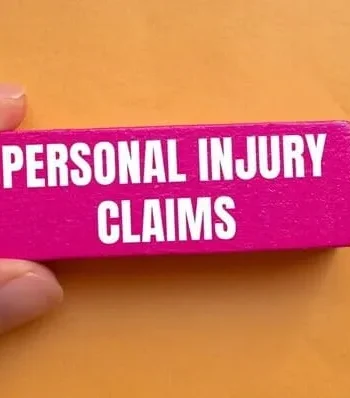
Illinois serves as the backdrop for a sobering reality. In 2023, the state logged an estimated 500 fatalities from motor vehicle accidents, a downturn from the previous year but still part of a long-running trend of over 1,200 traffic deaths annually. With tens of thousands of injury claims filed each year, such as the 60,453 damage-demand civil cases filed in Cook County in 2023 alone, the need for focused legal advocacy is clear. In this environment, the role of injury lawyers becomes especially relevant for residents across Illinois’s cities, suburbs, and regions.
When you or a loved one faces the aftermath of a serious accident, whether in Chicago, Springfield, Peoria, or any Illinois community, the preparation of your case matters. When personal injury lawyers prepare for your case, it’s more than a process; it reflects strategy. Backed by data and deep experience, skilled attorneys bring rigor to gathering evidence, understanding Illinois-specific rules (including the modified comparative-fault threshold), and standing up to insurers. By teaming with proven injury lawyers at Shore Injury Law, clients gain access to representation adapted to the state’s legal landscape, local courts, and the injuries that frequently arise in Illinois.
Initial Consultation and Case Evaluation
This initial step includes discussing the accident and injuries with a client. The lawyers start by listening attentively to the client about the details of the incident. In this stage, they collect everything from medical records to police reports. They also inquire about the daily effects on a client from the injury. Attorneys examine the facts to determine if the claim is valid.
Collecting Evidence and Documentation
Collecting all documents and evidence leads to a strong case. Attorneys gather pictures of the accident, witness information, and medical records. They routinely request CCTV footage or witness testimony to provide legitimacy to the client’s claims. Each bit of evidence bolsters the client’s position, after all. Thorough documentation ensures that there are no surprises when it comes time to negotiate or go to trial.
Investigating Liability and Damages
Attorneys thoroughly investigate who is liable for the event. They investigate how the injury occurred and assess the liability. When many parties, if not all, are guilty, that means a little more introspection is in order. Attorneys also assess the damages in other respects, such as medical bills, lost wages, and pain. Proper evaluation of these factors ensures that clients are compensated for their pain and suffering.
Engaging With Insurance Companies
Insurance companies are one of the biggest players in personal injury claims. Lawyers communicate with insurance adjusters in an effort to tell their client’s side of the story. This includes things like medical records and evidence of monetary losses, which they also submit. Often, in back-and-forth negotiations with insurers about settlement amounts, lawyers advocate for fair compensation, thereby shielding the client from accepting lowball offers.
Consulting Medical and Technical Experts
Complicated injuries sometimes require the assistance of forensic analysis. Attorneys consult with medical professionals to understand the long-term ramifications of injuries. They might also enlist the help of accident reconstruction specialists or engineers. Expert testimony can help explain the technical details of your case while also creating compelling evidence. These experts help clarify complex matters for judges and juries.
Drafting Legal Documents
When preparing a case, you need to draft the essential legal documents. Certain documents, such as complaints and motions, are typically drafted by lawyers. Everyone must meet strict legal requirements and provide details of the incident. Generally, proper drafting enables a case to flow smoothly through the court system. Time is crucial, and any mistake in your paperwork will either delay the process even more or, worse, jeopardize your claim.
Developing a Legal Strategy
As in every case, strategy matters the most. Then, the attorneys consider the strengths and weaknesses of the evidence to determine the best course of action. Different cases will respond to early negotiations and settlement, while others will necessitate aggressive litigation. It varies according to each case and the client’s wishes when it comes to strategic decisions. It is the duty of legal professionals to keep clients abreast of possibilities and potential scenarios.
Preparing for Negotiations or Trial
Negotiations usually precede court action. Lawyers create an outline of the main arguments and evidence to support their case. If negotiations are unsuccessful, the case may head to trial, where lawyers present their findings to a judge or jury. That preparation involves rehearsing arguments, preparing exhibits, and preparing the witness. Having confidence and readiness can transform a client’s experience into a positive one.
Maintaining Communication With Clients
At every step, maintaining constant communication with clients is essential. Quick access to updates and answers—Attorneys keep clients informed about new developments in their cases and answer questions promptly. This ensures that clients are aware of their legal rights and what they can expect to happen next. This level of transparency goes a long way in maintaining client trust and ensuring they are kept informed and aware of the case at all times, fostering a sense of confidence.
Final Thoughts
Personal injury lawyers have a systematic approach to preparing a case. Through their meticulous planning and hard work, clients are better able to obtain fair compensation for their injuries. Presenting arguments through evidence collection, experts, and strategies, legal experts guide an individual through a complex process with expertise and sensitivity. This preparation provides them with peace of mind and enhances their chances of securing justice after an accident.




